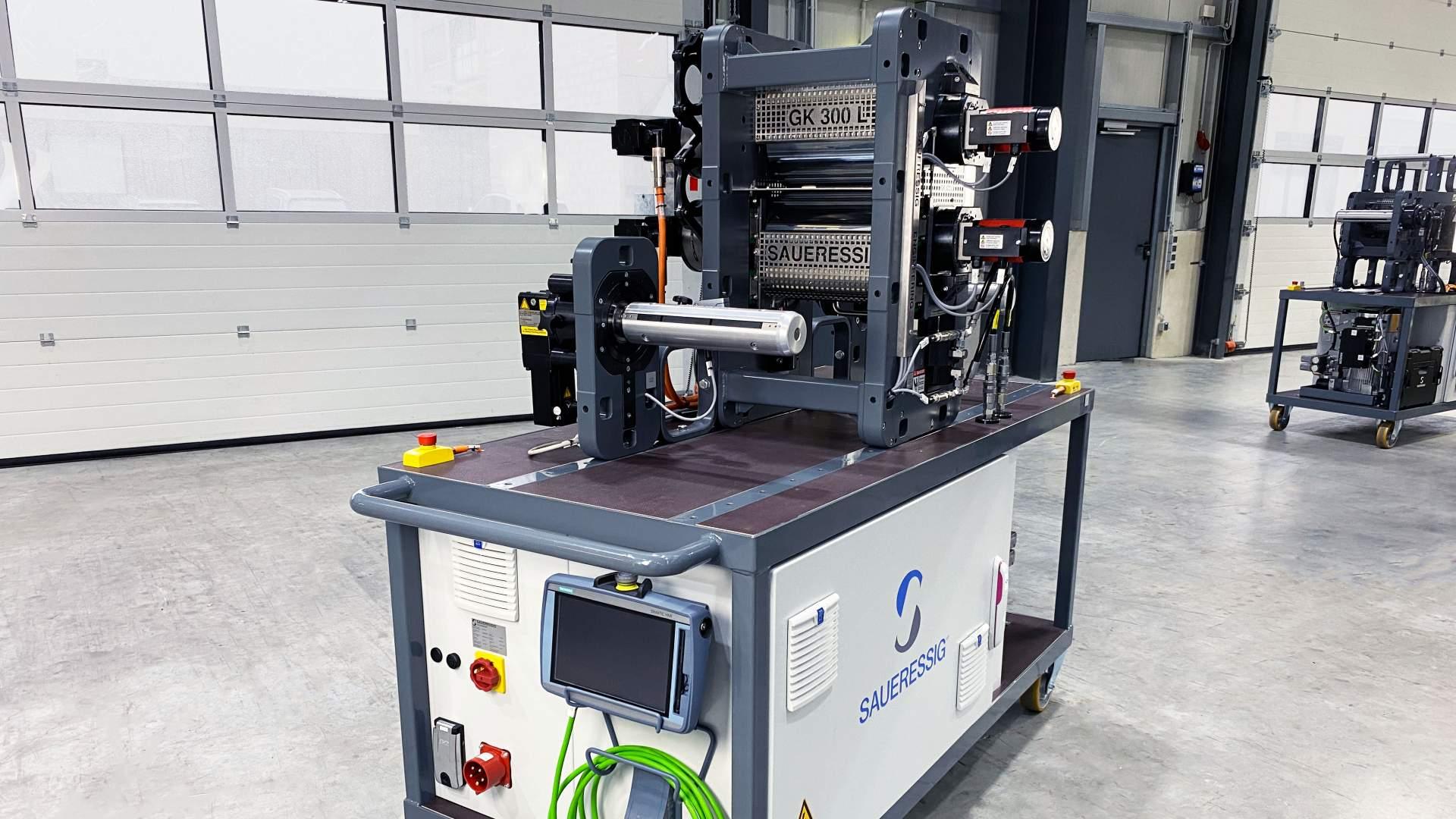The research project “HoWaLIB” with the participation of four project partners from industry and research develops a process for the targeted surface modification of electrodes based on roll structuring. This scaled technology enables higher-performance battery storage while retaining the same amount of active material. Thus, it supports the conservation of valuable resources and contributes to a more sustainable and cost-effective mass production of lithium-ion batteries as well as to the strengthening of the European competitiveness in the battery sector.
The Institute for Machine Tools and Industrial Management (iwb) at the Technical University of Munich, the Fraunhofer Research Institution for Battery Cell Production FFB, Manugy and Matthews International are creating a system concept for the simultaneous calendering and structuring of coated electrode material. Furthermore, this includes the development of a cost-efficient process for the manufacturing of structured rollers for the calender system. The validation will be carried out in the industry-oriented environment of the Fraunhofer FBB for a rapid transfer of the technology into industrial application. The research project “HoWaLIB – Upscaling of Roll Structuring in Electrode Production for Lithium-Ion Batteries” is funded by the Federal Ministry of Education and Research (BMBF) with around 2.5 million euros. The research project is coordinated by Matthews International.
Scaled technology – resource-saving and inline-capable
During the current technology shift, lithium-ion batteries as central components of energy storage and provision come to the fore. At the same time, the constant improvement of the underlying manufacturing processes in terms of sustainability, efficiency and cost-structure increasingly gain in significance. The “HoWaLIB” research project ties in directly with the results of the preceding project “ProfiStruk – Process and Machine Development for the process-integrated Inline-Structuring of Lithium-Ion Electrodes”. Within the predecessor project, various methods for the surface structuring of battery electrodes without loss of active material were tested. According to electro-chemical tests, roll structuring could be identified as a resource-saving possibility to enhance electrode performance while maintaining the same amount of active material used. Another key factor was the assessment of inline capability. The roll structuring process can be easily integrated into existing industrial production lines.
During the “HoWaLIB” project, the research partners will scale the process to accelerate its adoption in German and European machine engineering and production. Based on defined reference and target designs for the electrode as well as the battery cell, a high-throughput calender system equipped with structured rollers will be engineered and built. This also includes appropriate cleaning and maintenance strategies as part of an inline quality assurance concept. The Fraunhofer Research Institution for Battery Cell Production FFB provides an industry-like environment for the further validation and scaling of the technology.
Funded battery research – investment in the future and industrial competitiveness
Targeted and forward-looking strengthening of European competitiveness in the battery sector, particularly vis-à-vis Asian markets, can only be achieved through the development and successful industrial adoption of innovative manufacturing processes that optimise the cost structure of the cells produced. “With HoWaLIB, we are bringing a key technology for electrode structuring into industrial application, thereby making a significant contribution to sustainable battery cell production in Europe,” explains Dr Anna Zumbülte, project coordinator at Matthews International. “We are pleased that the importance of this technologically sovereign solution, as well as its potential for mass production of more powerful lithium-ion batteries, has been recognised by the federal government and that our common research contribution is being supported.”
The competencies gained in the research project align with the growing demand for cost-efficient battery systems and the declared goal of resource conservation in cell production. At the same time, they contribute to strengthening Germany as an industrial location as well as the European economic area. Through the possibility for effortless integration of the process into existing production lines as well as making it an integral part of designated plants at a gigafactory scale, the project results create versatile exploitation opportunities and international competitiveness.
The research project is conducted under the funding reference number 03XP0638 A-D, has a duration of three years and will conclude on 31 December 2027.

